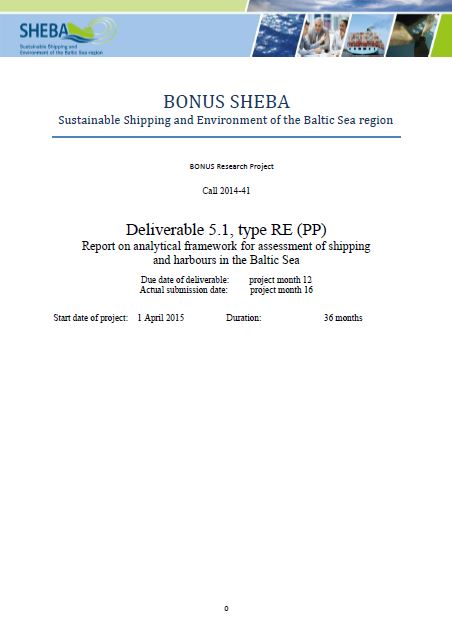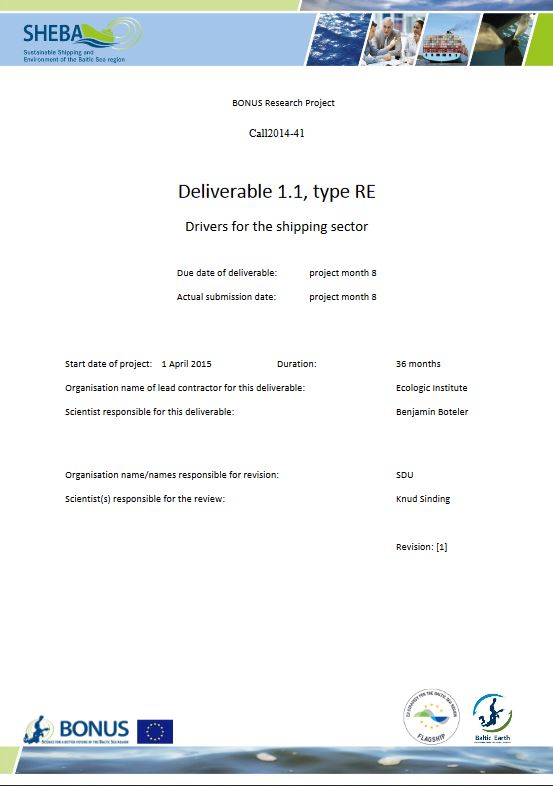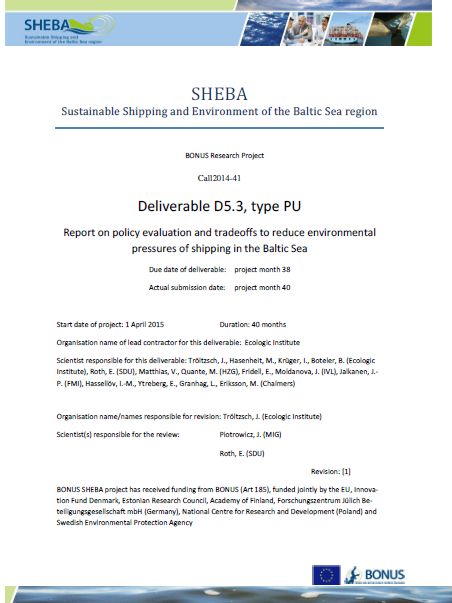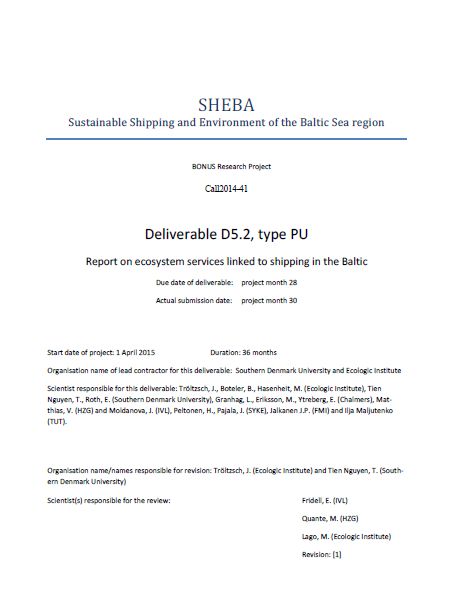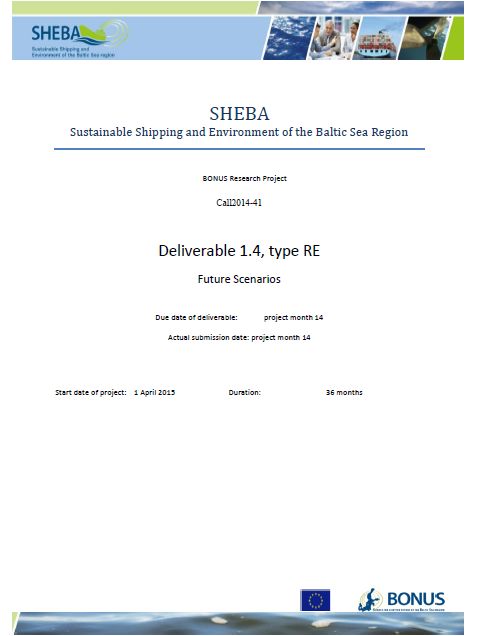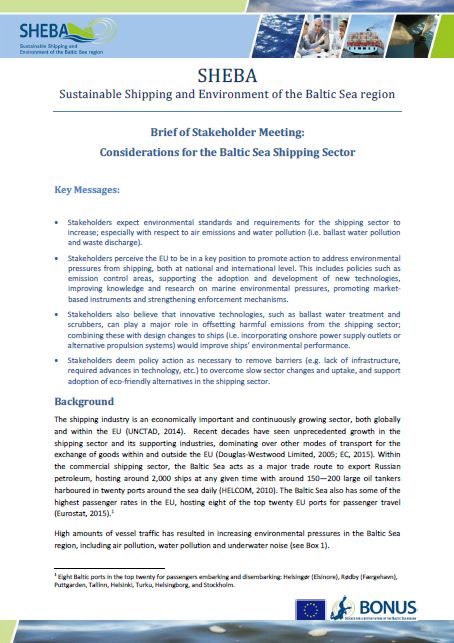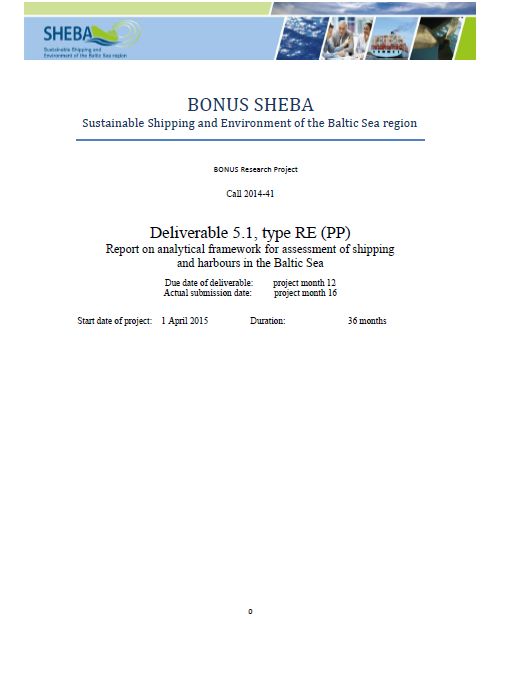Analytical Framework for Assessment of Shipping and Harbours in the Baltic Sea
- Publication
- Citation
Ytreberg, Erik; Lena Granhag; Benjamin Boteler et. al. 2015: Report on analytical framework for assessment of shipping and harbours in the Baltic Sea, type RE within the BONUS Research Project "SHEBA Sustainable Shipping and Environment of the Baltic Sea region".
The aim of this report is to create a framework to understand and ultimately assess the linkages from the drivers of shipping in the Baltic Sea to its effects on ecosystem services and human wellbeing. Available Drivers Pressures State Impact Response (DPSIR) frameworks are analysed and adapted to shipping in the Baltic Sea. The developed DPSIR framework will be operationalised in further steps using available indicators. An adapted DPSIR framework and especially the reviewed indicators will be used to assess potential changes to ecosystem services compared to Business As Usual (BAU) and an integrated assessment and policy analysis to reduce pressures from shipping in the Baltic Sea.
This report is divided into the following sections:
- Section 1 provides an Introduction and background for the report as wella as delineates the approach and methodology, which was used to write this paper and to build the BONUS SHEBA framework.
- Section 2 shows the evolution of DPSIR framework.
- Section 3 presents how this framework was adapted to shipping in the Baltic Sea. Furthermore, the characteristics of Drivers (3.1), Pressures (3.2), State (3.3), Impact (3.4) and Response (3.5), as well as the links between them are shown. Much emphasis is given on the types of responses (3.5.1) and linking responses to the current policy framework (3.5.2)
- In Section 4, the DPSIR framework is operationalised for shipping in the Baltic Sea. In this part of the report also the interlinkages of the SHEBA DPSIR for shipping in the Baltic Sea (4.1) and indicators (4.2) are covered.
- Section 5 draws conclusions and describes the next steps of BONUS SHEBA.
Relevant policies for shipping in the Baltic are listed in the published BONUS SHEBA Deliverable 1.1 "Drivers for the shipping sector". The costs of environmental degradation from shipping in the Baltic Sea and future scenarios outlining potential responses will be refined and assessed in upcoming BONUS SHEBA assessments.
